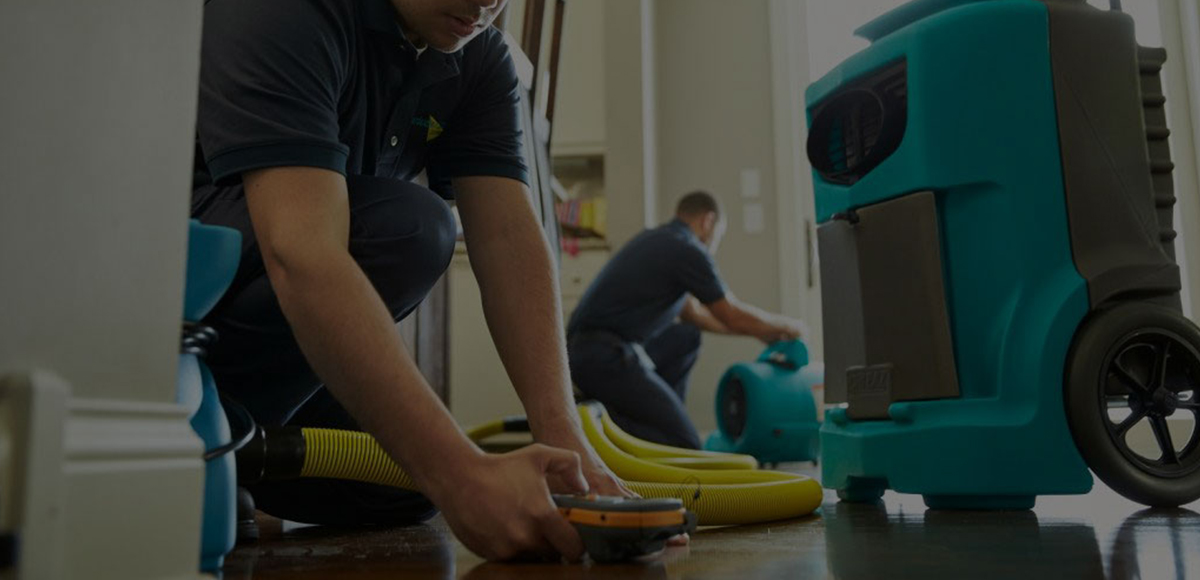
Dehumidifiers vs. Air Conditioners: What’s the Difference?
Keeping the air in your home dry and free from moisture is important for promoting good quality air for breathing, but it’s also important for keeping mould and mildew away. Dehumidifiers and air conditioners both alter the air around them to provide comfort when we need them, but what’s the difference and how can they affect the air in your home?
Dehumidifiers
As their name implies, dehumidifiers remove the humidity from interior spaces by allowing the humid air to pass through an evaporator coil and a condenser coil and to come out drier and slightly warmer. The evaporator coil cools down the incoming air and separates the water vapour from the air, depositing it into a container which has to be manually disposed of every so often. The condenser coil then heats up the air and releases it back into the room.
Dehumidifiers are ideal in damp spaces where mould would have a chance to set in. They are especially useful in remediating water damage after flooding has occurred in a home. If carpets and flooring has sustained damage from flooding, mould may have the opportunity to set in if the moisture isn’t removed quickly. Dehumidifiers and fans can help to disperse and absorb the moisture, thus saving sections of flooring or carpet altogether.
Air Conditioners
Technically, air conditioners operate in a similar fashion to dehumidifiers. They take in warm air, process it over evaporator and condenser coils, then release cool air into the home. The key difference is that air conditioners are better at cooling an area than reducing moisture, but they actually perform both functions.
Since the warm air passes over the evaporator coil, which cools the air (often using a chemical such as Freon), then over the condenser coils, much of the outdoor moisture is removed and clean, drier air circulates through the home. Air conditioners direct the hot air from the condenser coils away from the home, which is a key difference from dehumidifiers.
Which is Better?
Both dehumidifiers and air conditioners perform similar functions in how they reduce humidity and moisture in a room. In terms of energy consumption, dehumidifiers are almost always far less energy-intensive to produce the desired effect, whereas air conditioners can be quite wasteful if left running all day.
Naturally, air conditioners perform the function of cooling better, but don’t neglect the fact that they also regulate the amount of moisture in the home. If damp and moisture is common in your home but you also experience hot summers, combination units are available that can perform both dehumidification and cooling all in one unit.
Will Dehumidifiers and Air Conditioners Help Water-Damaged Carpets?
Damaged flooring and carpets due to flooding are really a case by case situation. Often, damaged sections of carpet can be easily (and for little cost) replaced and thus completely new carpet installation may not always be necessary. Dehumidifiers and air conditioners can help quite a bit if they’re used around water-damaged carpets and they may prevent the acceleration of mould and bacterial growth.
Call Floodcare Today
Keeping a dehumidifier around the home can be useful for absorbing moisture at all times, but when flooding occurs and your carpets look to be seriously damaged, it may be time to call in a water damage expert such as Floodcare. Our carpet replacement experts are accustomed to dealing with flooded carpets of all severities and can repair and replace most carpet types, even if they appear substantially damaged. Don’t hesitate to contact us today.
 Skip to content
Skip to content

